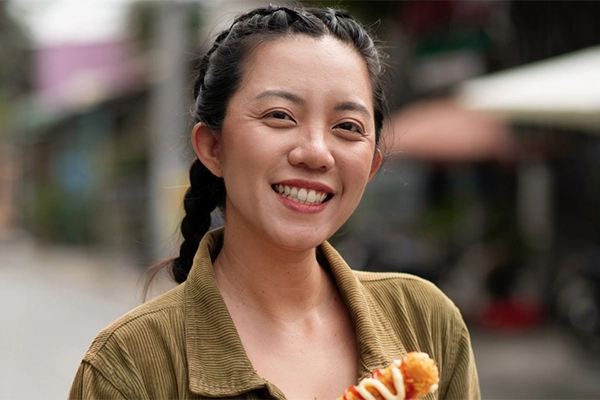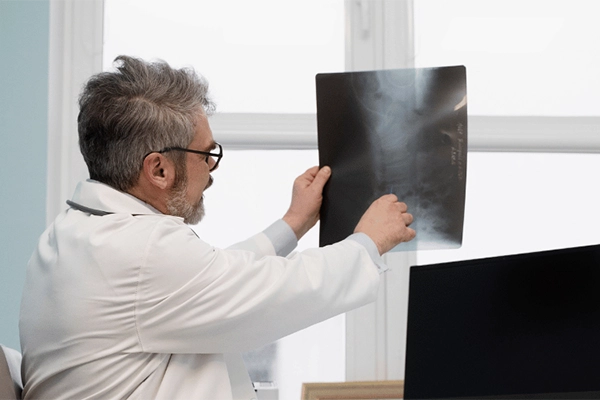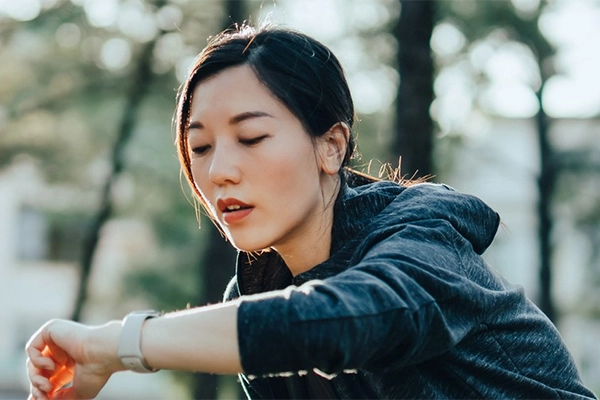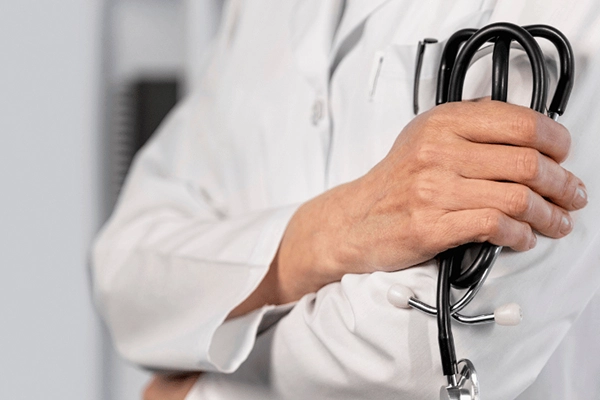Topics
Chemotherapy can be a challenging journey for anyone diagnosed with cancer. Yet, amidst its formidable nature, chemotherapy is a powerful ally in the fight against this disease. Though it often brings along a host of side effects and complexities, there are numerous strategies to support your well-being during treatment.
In this article, we will explore ways to nurture your health during chemotherapy, ensuring the best possible outcome for your treatment.
What is chemotherapy?
Chemotherapy, or chemo, is a medical treatment that uses powerful drugs to target and destroy cancer cells or inhibit their growth. These drugs work by interfering with the cell division process, which is often rapid in cancer cells. Chemotherapy may be used alone or in combination with other treatments, such as surgery or radiation therapy.
What are the types of chemotherapy?
Chemotherapy is a less invasive option than surgery and helps preserve organ and limb function by directly targeting cancer cells without physically removing body parts. In specific cases, chemotherapy alone can eliminate all cancer cells, serving as the primary treatment and leading to a total cure.
Chemotherapy can be administered via:
- Intravenous chemotherapy: This method involves receiving medication directly into a vein. Typically done in a hospital setting, a tube is inserted into a vein in your hand, arm, or chest through which the medicine is administered. This approach allows for precise delivery and monitoring by your doctor.
- Oral chemotherapy: With oral chemotherapy, medication is taken in tablet or liquid form. This treatment can often be managed at home, with patients following a prescribed course of medication. Regular check-ups with your doctor are necessary to monitor progress and manage any potential side effects.
Read about the cancer treatment technologies available at Pantai Hospitals Malaysia.
When is chemotherapy used?
Chemotherapy is utilised in cases where cancer has metastasised, or there is a likelihood of it spreading.
- Complete cancer eradication (curative chemotherapy).
- Enhancing the effectiveness of other treatments like radiotherapy or surgery (chemoradiation or neo-adjuvant chemotherapy),
- Minimising the risk of cancer recurrence post-radiotherapy or surgery (adjuvant chemotherapy
- Alleviating symptoms when a cure is not possible (palliative chemotherapy).
The effectiveness of chemotherapy varies greatly. Consult your doctor to understand the likelihood of treatment success in your situation.
What are the side effects of chemotherapy?
While chemotherapy is a potent cancer fighter, it can also cause various side effects. These include:
- Fatigue
- Increased risk of infection
- Nausea and vomiting
- Bruising and bleeding
- Diarrhoea or constipation
- Hair loss
- Memory loss and concentration problems
- Sore mouth
- Sex and fertility issues
- Emotional issues
- Insomnia
- Tiredness and weakness
- Tinnitus or hearing loss
It is worth mentioning that while some individuals may encounter side effects, others may have minimal experience with them. The crucial factor is to stay healthy before, during and after chemotherapy.
Is chemotherapy painful?
One of the concerns many patients have is whether chemotherapy is painful. The treatment is not painful but can lead to various discomforts. Various cancer treatments can lead to distinct types of pain.
While cancer-related pain may not always be eliminated, there are strategies to reduce discomfort in most patients. Effective pain management can enhance your quality of life throughout cancer treatment and post-treatment.
Why do chemotherapy drugs cause nausea and vomiting?
Nausea induced by certain chemotherapy medications proves to be a challenging side effect for many individuals, significantly impacting their quality of life across various aspects.
However, not all chemotherapy drugs induce nausea. When it does occur, it typically manifests within minutes to several hours after administration. The duration of nausea varies, with some experiencing it for a few hours or until the following day, while others may endure it for several days.
Several risk factors contribute to chemotherapy-induced nausea:
- Female
- Younger than 60
- Undergoing their first cycle of chemotherapy
- Have previously experienced nausea during prior treatments
- History of motion sickness or nausea during pregnancy increases susceptibility
- Anticipatory nausea and vomiting, occurring before chemotherapy, also heighten the likelihood of experiencing these symptoms
Other factors influencing nausea include:
- Specific types of chemotherapy, such as platinum or anthracycline drugs
- Dosage administered
- The rate at which it is delivered
- Method of administration
How to prepare for chemotherapy treatment?
Preparing for chemotherapy is essential to ensure the process goes as smoothly as possible. Here are some ways to do so:
- Prepare a treatment bag that includes warm clothing, nutritious snacks, beverages, lip balm, and entertainment such as a book, magazine, music with earphones, or a laptop/tablet.
- Arrange for someone to accompany you, especially for the journey back, as some medications can induce drowsiness.
- Enlist the help of a friend or family member to arrange assistance, such as childcare, before and after treatment.
- Talk to your employer to discuss any necessary work arrangements, including time off or leave, particularly on the day of treatment and the following day.
- Prioritise self-care by maintaining your health before and during treatment. Stay hydrated, get sufficient sleep, consume nutritious meals, engage in physical activity, and ensure ample rest to help mitigate some chemotherapy side effects.
- Have a support system to discuss the journey of cancer and chemotherapy, whether through a conversation with a family member, friend or doctor.
- Familiarise yourself with potential side effects and prepare accordingly. For instance, if hair loss is anticipated, you may choose to have your hair cut before treatment begins.
- Communicate any other medications you are taking to your doctor, as they may interact with the chemotherapy.
How to stay healthy during chemotherapy?
Staying healthy during chemotherapy is crucial regardless of how difficult the journey may be. This involves a combination of self-care and medical guidance. Here are some tips to consider:
Prevent infections
Chemotherapy can weaken your immune system, making you more susceptible to infections. To protect yourself:
- Practise good hand hygiene: Wash your hands frequently and carry hand sanitiser.
- Avoid large crowds: Steer clear of crowded places during flu season or outbreaks.
- Stay away from sick individuals: If you know someone who is ill, it is best to keep your distance.
Manage nausea
Nausea is a common side effect of chemotherapy, but there are ways to manage it effectively:
- Take prescribed anti-nausea medications: Your doctor will likely prescribe medications to help control nausea and vomiting.
- Eat smaller, more frequent meals, especially on treatment days: This can help reduce the feeling of fullness that can trigger nausea.
- Stay hydrated: Dehydration can worsen nausea, so drink plenty of fluids.
Diet after chemotherapy
Maintaining a balanced diet is essential to support your overall health. Focus on:
- Fruits and vegetables: Essential to provide vitamins and minerals to boost your immune system.
- Protein-rich foods: Protein helps repair and regenerate cells.
- Whole grains: They provide energy and keep your digestive system healthy.
Drink plenty of fluids
Staying hydrated is vital during chemotherapy. It helps your body flush out toxins and supports your overall well-being. It is best to drink at least eight cups of water a day.
Engage in light exercise
Regular, gentle exercise can improve mood, reduce fatigue, and boost overall health. Consult your doctor to determine what activity level is appropriate for you.
Consult your doctor before taking supplements
While supplements can be beneficial, it is crucial to consult your healthcare provider before taking any during chemotherapy. Some supplements can interfere with the treatment or cause unwanted side effects.
Reach out for support (mental and emotional health)
Dealing with cancer and chemotherapy can be emotionally challenging. It is essential to reach out for support when needed. Consider joining a support group, speaking with a therapist, or confiding in friends and family.
How do you care for patients undergoing chemotherapy?
Your support is invaluable if you are a caregiver for someone undergoing chemotherapy to help them remain healthy during this arduous journey. Here is how you can help:
- Be patient and empathetic: Understand that your loved one may experience mood swings, fatigue, and other side effects.
- Help with daily tasks: Assist with cooking, cleaning, and driving to medical appointments.
- Be a good listener: Sometimes, the best way to help is to lend a sympathetic ear.
- Encourage self-care: Encourage your loved one to follow their doctor’s advice and take medications as directed, prioritising their health and well-being.
Make an appointment at Pantai Hospitals
By familiarising yourself with chemotherapy, getting ready for its challenges, and adopting these strategies to maintain your health, you can effectively navigate its side effects and improve your chances of a positive outcome. Remember that your healthcare team is dedicated to assisting you throughout this journey, providing support and guidance at every stage.
Get in touch with us to book an appointment today for a consultation, or visit our Oncology Department at your nearest Pantai Hospital.
Pantai Hospitals have been accredited by the Malaysian Society for Quality in Health (MSQH) for its commitment to patient safety and service quality.












